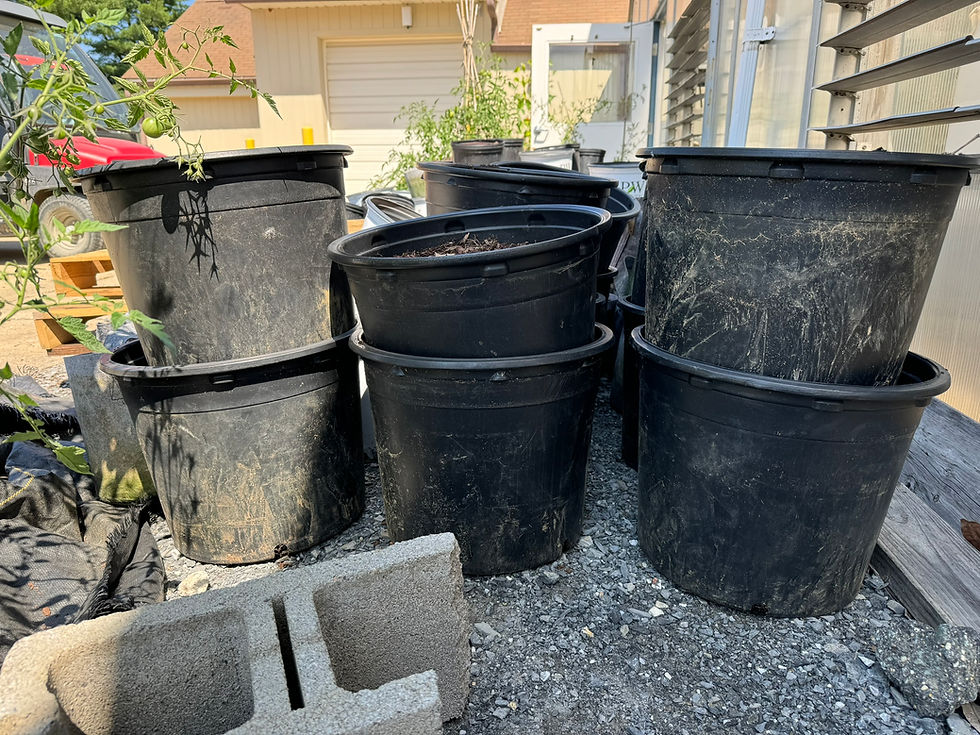Healthy Pots, Healthy Planet Hosts Webinar on Plastic Plant Containers
- healthypotshealthy
- Sep 20, 2025
- 2 min read

In September, Healthy Pots, Healthy Planet hosted a webinar presented by Marie Chieppo on “Redesigning the Future of Plastic Plant Containers.” Marie was the researcher and author of Plastic Pots and the Green Industry, a product of the Sustainability Committee of the Association of Professional Landscape Designers, published in 2020. Since then she has become a subject matter expert, and the webinar was an opportunity to learn how the industry is addressing the concerns about plastic plant containers. Her report paints a picture of notable movement in the right direction.
Marie’s presentation opened with a description of plastics production and disposal in general. No one will be surprised to hear that plastics production has continued to rise, and most used plastic, including plant containers, is disposed of in landfills. Narrowing the focus, a recent analysis of plastics use in horticulture revealed that plant propagation results in the greatest use of plastic containers in the form of plug trays. To make matters worse, the trays are typically made of polystyrene, a weak plastic that is difficult to recycle at all.
But the encouraging part is that change is happening on at least two fronts. Measures are being taken by several states and also by manufacturers of containers to improve the products. Several states have enacted Extended Producer Responsibility (EPR) laws requiring manufacturers to plan for appropriate, responsible disposal at the end of the product’s use. These laws vary from state to state, and other states are considering EPR regulations.
For their part, manufacturers both see the writing on the wall and genuinely want to improve the environmental impact of the containers they make. Efforts range from reducing the amount of plastic used – for example, Monrovia is purchasing containers made from 97% post consumer recycled materials – to developing plantable, biobased pots that contain no petroleum-based plastic.
Marie emphasized that the advocacy of Healthy Pots, Healthy Planet and others has had a hand in driving the changes underway. As she said, “we made some noise.” This is demand in action.
And demand seems to be getting results. Demonstrating demand for more sustainable options is the reason Healthy Pots, Healthy Planet maintains a public list of supporters, which has grown to over 1,000 individuals and organizations. Demand matters. We just have to keep it up.
Marie’s presentation was an informative look at where things stand. To view it, visit https://www.healthypotshealthyplanet.org/education.

.png)


